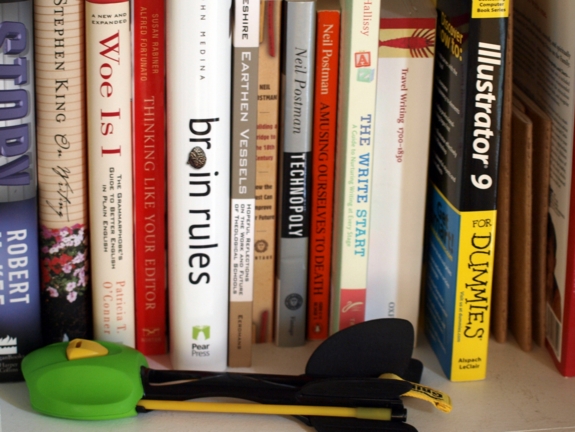There’s no trick to getting published. With the obvious caveats—that a person has solid writing skills and a fair amount of tenacity—if someone wants to be a published author, he or she can. The rub is that most would-be authors don’t want to just be published, they want their book published, which is something else all together.
The trick is to figure a way to write a book that a publisher wants to publish. In my own writing career, I’ve almost never gone to a publisher with a great idea and tried to sell them on it. Instead I’ve asked editors what holes they have in their publishing plan and then offered to fill one of those holes. This strategy has been particularly useful in travel writing, where publishers develop different series of books and the holes are easy to spot. I suspect in textbook publishing it’s similar. Editors there need to have a stable of books to offer professors teaching a number of courses, classes that tend to be pretty much the same school to school. I would assume that a qualified would-be writer could look through a publisher’s catalog and readily identify what books the publisher needs.
But in the greater publishing world, what’s “missing” from a catalog is often an unknown, even to the editors charged with filling it. (Think of how many editors didn’t realize they “needed” Harry Potter and the Philosopher’s Stone.) Writers looking to publish the next Harry Potter, or the next John Adams for that matter, need to sell their books to an editor. That’s where you need Susan Rabiner’s excellent book, Thinking Like Your Editor, which gets to the heart of this process, a process that centers on “the proposal.”
For the books I’ve written, the proposal is really straight forward. The book I want to write is one I already know the publisher wants to publish. Once you have that piece, the rest is just filling in the details. For writers who have to sell an editor on the idea of their book, I point them to Rabiner. Her book does a great job of walking writers through the hard work of looking at their books through the eyes of an editor: How will this book make us money? Who’s going to buy the book? What books compete with this one, and why is this one better?
For some people, the proposal is the hardest part of the process. But the added benefit is that answering tough questions about your project will not only make it more attractive to editors, it will make the your book a better book.
[If you are working on a book, perhaps I can help you on the path to getting it published. I’ve written my fair share of successful proposals, and I’ve read through and edited hundreds of manuscripts. Send me a message and we’ll talk.]

